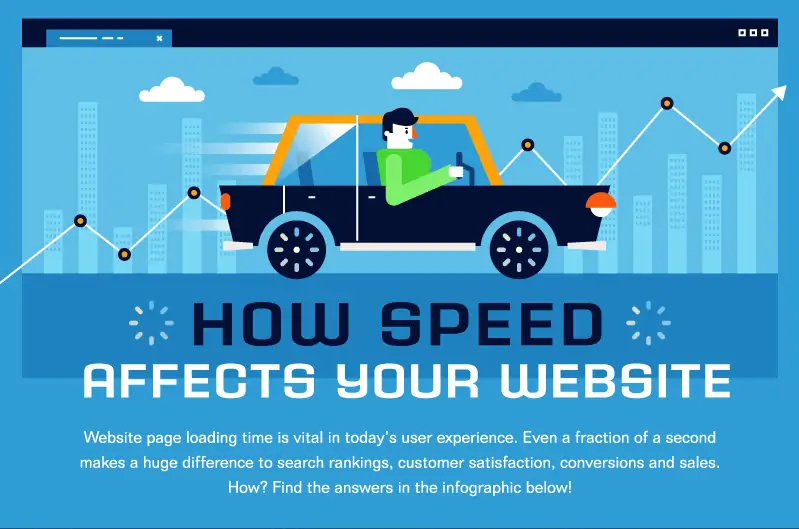If you’ve ever looked into ways to improve search rankings for your content, chances are you’ve seen website speed mentioned repeatedly. It was a hot topic throughout 2018, and it’s going to be even more important as 2019 unfolds.

Speed optimization is nothing new. Google has been strongly encouraging faster websites for years.
Evidence is piling up that confirms slow websites perform poorly in comparison to faster ones, and website owners are slowly responding to the fact-based need for quicker load times.
Slow Load Times — What the Stats Say
HostingTribunal, a website dealing with web hosting reviews, tested the speed of all top hosts, with and without stress.
Test results show that the average desktop site takes 9.3 seconds to load, while the average mobile load time is 22 seconds — a substantial gap between the SEO experts’ recommendation of only 3 seconds of load time.
The experts focus heavily on website speed because statistics show faster websites consistently perform better in almost every measurable aspect.
Let’s look at the data.
Slow Load Time Damages Organic Search Ranking
Keeping in mind that desktop load times average at 9.3 seconds, consider the fact that websites achieving the top slots in search results load in an average of 1.9 seconds — almost 5 times as fast.
The consistent appearance of faster sites in top ranking positions supports the conclusion that your organic search traffic will suffer if you’re running a slow website, even if you have high-quality content.
This “penalty” is just the beginning.
Slow Load Time Means Poor Reactions from Users
Google doesn’t penalize slow websites on a whim.
Google’s job is to provide the most satisfying search results for users, and statistics gathered on visitor behavior clearly show that users hate slow websites.
Higher Bounce Rates
The first relevant statistic shows that slow websites increase the probability of visitors “bouncing,” which means visitors leave a website after briefly viewing only a single page.
If your load times increase from 1 second to 10 seconds, visitors are 123% more likely to bounce away from your site to look for their answers elsewhere.
Your slow website probably costs you opportunities to connect with many people who find themselves on your site.
Fewer Page Views
Even if the user doesn’t bounce and stays on to look at other pages despite the slow load times, they look at fewer pages in total.
If your pages load in 2 seconds, visitors look at an average of 8.9 pages. If your load times go up to 8 seconds, you get only 3.3 pageviews per visitor.
That means you’re getting more “contact” with each visitor if you have faster website speed, but slower website speed severely limits the effectiveness of each session.
Website Speed — Putting It All Together
When we look at the combined effect of these 2 factors, the numbers show that each second added to your load times means 11% fewer total page views.
Longer load times are especially damaging to monetized sites, resulting in:
- Fewer clicks
- Reduced customer satisfaction
- Fewer recurring customers
The final tally of all these results shows that each second of delay costs you 7% of your conversions.
All things considered, it’s easy to see why both Google and the leading experts recommend speeding up your website.
Improving Website Speed — Learn More
If you want to improve your website speed, now is the best time to do it. A lot of website owners have already made significant headway in 2018. 2019 is your chance to get into the game before you get left behind.

If you are interested in learning more or seeing more detailed stats on website speed, the infographic below has everything you need.
Get all the statistics showing how load time affects your website — click here to read more.

